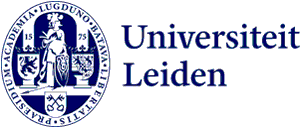
Vici grants for three Leiden researchers
Three Leiden researchers have been awarded a prestigious Vici grant, the Dutch Research Council (NWO) announced on Tuesday. Two of the researchers work at Leiden University and the third at the Leiden University Medical Center (LUMC).
With the awards worth up to 1.5 million euros, the laureates will be able to develop an innovative line of research and set up their own research group for a period of five years. In total, 22 prominent researchers from the Exact and Natural Sciences and Social and Behavioural Sciences have received Vici awards.
The Leiden recipients of a Vici award are:
Anouk de Koning (Cultural Anthropology and Development Sociology)
Across Europe, living labs experiment with doing the welfare state differently, seeking to generate cohesive neighbourhoods and community welfare in innovative, collaborative ways. Such experiments shape future welfare arrangements, with new relationships between government, citizens and society. This project will study welfare experiments in four European cities with distinct governing traditions, welfare structures and social fault lines. How do experiments in these cities shape relationships between state, society and citizens? Do they perpetuate existing social hierarchies or do they move beyond them? And what do they tell us about the futures of European welfare states?
Vanessa Mak (Civil Law)
The project challenges the one-size-fits-all model of consumer laws, where the consumer is seen as a weaker party in relation to businesses. Digitalisation, platformisation and sustainability demand a new approach. Comparative legal research, identity philosophy and stakeholder interviews provide the basis for reconstructing a differentiated model for EU consumer law.
Martijn Luijsterburg (Medicine/LUMC)
Protein machines that read our genes get stuck on damage in the DNA template. DNA damage must first be repaired before these protein machines can continue. How this works is currently unknown. The researchers will use genetic, cell biological and genome-wide methods to unravel how these processes work.
